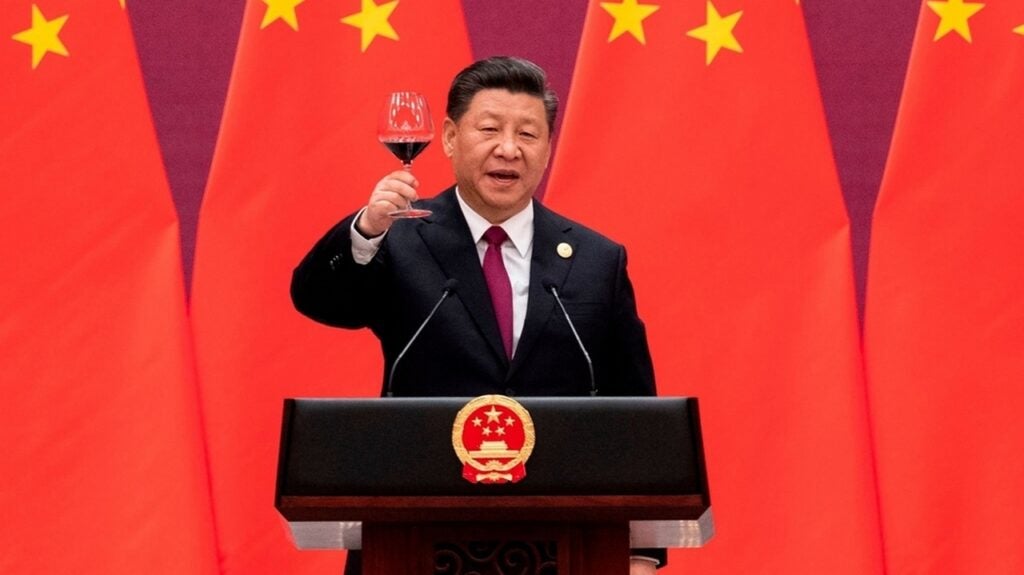
China has made the bold move of copiously stimulating the economy and two economists weighed in on the development in two separate opinion pieces contributed to Project Syndicate.
The Largesse: The Chinese central bank announced a 50 basis-point cut to its mandatory reserve ratio and cut its benchmark policy rate by 0.2 percentage points. The People’s Bank of China also cut rates on existing mortgages by 0.5% points and reduced the minimum down payment on second homes from 25% to 15%. Governor Pan Gongsheng revealed plans to boost the stock market by providing institutional investors with liquidity support.
Delayed Response? Angela Zhang, a law professor at the University of Southern California and an expert in Chinese policies and regulations, noted that the latest stimulus announced in late September is a delayed response to the looming deflation threat, as warning signs have been evident for over a year.
The professor, however, gave the benefit of the doubt to China. The government was reluctant to go bold for a few legitimate reasons, the chief of which is its realization that the nation should shift away from real-estate and infrastructure investment-fueled growth to more sustainable sources of growth, like high-tech innovation.
The government was wary of the undesirable effects of the massive 2008 stimulus, which led to a debt pileup among local government and state-owned enterprises, Zhang said. It did not favor consumption-driven growth and instead wanted to transform itself as a “self-reliant industrial and technological powerhouse.” she added.
Authorities chose to go in with modest incremental rather than go full throttle but did not find success with this strategy, Zhang said.
See Also: Best Chinese Stocks
Economist Yu Yongding, who had previously served on the PBoC’s monetary policy committee, said in a separate op-ed that data out of China, including retail sales and fixed asset investment, were weaker in August. Net exports rose about 8% but its contribution was only 2.5% of the GDP.
Therefore, the typically strong fourth quarter of the year was going to be weak this time around, necessitating significant government intervention to hit the 5% 2024 GDP growth target, he said. The economist thinks China’s “economic miracle of 10%+ growth is over. That said, with “wise macroeconomic policy, market-oriented reforms, and a genuine commitment to opening up its economy,” the economy should be able to maintain a solid growth rate of 5-6% for the foreseeable future, he added.
Forced Action: Zhang said, “China is staring down the barrel of a Japan-style ‘lost decade’ of deflation and stagnation. Although a reactionary move, China has fully mobilized its monetary and fiscal tools to rescue the faltering economy, she said, calling the latest actions the “right move.”
The professor noted that China’s stock market has responded with the biggest weekly rally since 2008. And investors expect more to follow.
Zhang, however, flagged a looming risk. “The fear now is that this sudden injection of capital into the economy could create stock-market bubbles, sowing the seeds of the next financial crisis,” she said. To avoid such a scenario, “China must take steps to minimize the unintended consequences of its policy interventions, such as creating mechanisms for obtaining real-time, accurate feedback that can guide mid-course corrections before bubbles form and crises erupt,” she said.
“More fundamentally, China must break its habit of hasty and dramatic policy shifts, based on top-down decrees, and
return to the approach that served it so well in the past: gradual and incremental reforms, based on decentralized policy experimentation.”
Yu said PBoC’s actions alone might not suffice to revitalize the Chinese economy and the finance ministry now has to act. While stating that a hasty act could prove counterproductive and so to kickstart growth in the final three months of the year, the economist said “the government should announce a comprehensive large-scale stimulates package as soon as possible to use the “announcement effect” to boost morale and raise public confidence.
The iShares MSCI China ETF MCHI is up an incremental 3.49% in premarket trading on Friday to $56.91, according to Benzinga Pro data. Since Sept. 20, the ETF is up about 29%.
The Chinese Shanghai Composite Index gained about 22% between Sept. 20 and Sept. 30 before it closed for a weeklong National Day holiday.
Read Next:
Image via Shutterstock
© 2024 Benzinga.com. Benzinga does not provide investment advice. All rights reserved.

